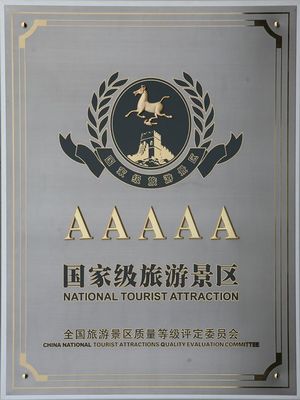Course:FRST270/Wiki Projects/Community forest management in Xixi National Wetland Park Hangzhou China
Community forest management in Xixi National Wetland Park, Hangzhou, China
This case study examines Hangzhou’s community forest by looking at its national wetland park: Xixi Wetland. During recent years, Hangzhou has been seen as the most popular green city for tourism purpose, as well as Xixi Wetland Park, it is considered to be a great natural forest oxygen bar for individuals to breathe fresh air and get relaxation. As the city develops, people’s awareness of conservation towards natural forest is raised. But real estate agencies’ interests of gaining profits from building and selling houses inside Xixi Wetland Park have also increased a lot. The fact that Xixi Wetland contains a large amount of precious natural resources attracts many scholars to do research and conservation groups (NGOs) to give protections of this land. The conflicts between different interested stakeholders are debatable as well as the issues between business people who want to invest in Xixi Wetland and citizens who are affected stakeholders. The government of Hangzhou is essential for solving these problems however, solutions are hard to keep a balance between each stakeholder, and the negotiation is ongoing.

Description

Xixi National Wetland Park, known as “the Kidney of Hangzhou” is located on western side of Hangzhou, Zhejiang, China (Hangzhou, 2014). Xixi wetland originally had an area of 60km2 (Zhang, 2016). However, the area has been decreased to 11km2 during the past 30 years, which raise the awareness of residents inside Hangzhou towards the idea of losing a rare and important wetland resource. In 2003, the government of Hangzhou started acting on protecting Xixi wetland. In 2005, followed by the order of the state forestry administration of China, Xixi National Wetland Park was constructed. Since then, Xixi Wetland Park has always been considered as a recreational space for urban residents. Its main function includes containing retaining water, purifying water, flooding storage, regulating climate change, keeping fresh air, and maintaining biodiversity (Xu, 2014). 70% of the Park is covered with water resources. It also has various numbers of animals and plantations. As well as many key protected species, such as Loetes sinensis, Glycine soja and accipiter virgatus (Pan, 2010).
Tenure and Administrative arrangements
Xixi Wetland was freehold by local residents until the establishment of dynasties, it became owned by the country. After 1960, with the settlement of villages and towns, and the development of factories, the range of Xixi Wetland decreased (Shen, 2009).
Municipal Urban and rural planning department organization are in charge of making the Wetland Park rules, which will be examined and verified by the government of Hangzhou during the final process before publishing them. Not only does the government of Hangzhou is in charge of publishing protection laws towards Xixi National Wetland Park, local government, and NGOs can also mediate the negotiations and conflicts between communities and companies to help them reach an agreement as well as economic support Xixi National Wetland Park (Chen, 2013). Hangzhou Environmental Protection Bureau is in charge of all environmental protection issues in Hangzhou city, including the elaboration of the programs, the protection of species, and the evaluation work for the development on both economy and society (Pauleit, 2008). National Wetland Park council is established by the government of Hangzhou, it is in charge of implementing the laws, supervising local communities, reporting issues to a higher authority, managing and protecting Xixi National Wetland Park. Local communities, certain companies, and certain representative individuals are also in charge of overserving the tourists’ activities as well as creatures’ living status happening inside Wetland Park and reporting issues to higher administrates if necessary.
Affected Stakeholders
Hangzhou is a city that has a long history of five thousand years, with its rich cultural landscape and historical relics, the number of tourism has been largely increased. As a result, migrants and residents are hugely increased during past few years (Qian, 2015). As Xixi National Wetland Park constructed, the expanding number of tourists each year brought negative influences on local residents, which resulted in anthropogenic pollutions, such as waste pollution and noise pollution.
The main group of affected stakeholders is Xixi wetland residents, who has been living around Xixi Wetland for many generations. They witnessed the influences brought by the urbanization of Xixi Wetland: the loss of land, decrease of wetland biomass (Zhang, 2016).
Another affected stakeholder is tourists who visit Xixi National Wetland Park. Investigation groups had examined perfluorinated compounds in surface water of the Xixi Wetland. Results showed that Xixi Wetland may have significantly contributed to the increase of perfluorooctanoic (PFOA) level. PFOA is particularly known to cause acute and subchronic toxicity effects (Xu, 2016). Individuals who choose to visit Xixi Wetland are seeking for relaxation and fresh air but not polluted environment who is dangerous for their health.
Both of these two affected stakeholders have low relative power.
Interested Outside Stakeholders
According to the large biodiversity Xixi Wetland has, it is important to protect this natural environment, as well as the rare species that live there, which is why many NGO groups have been participating in the protection of Xixi Wetland natural environment.
Interested stakeholders of Xixi National Wetland Park are the state forestry administration of China, the government of Hangzhou, and local communities of Xixi National Wetland Park. Their relative power is high.
Moreover, as the number of tourism largely expanded, the economic growth rate is also increased. The demand for restaurants, hotels, souvenir shops, and transporting tools (boats, bikes, etc) have also increased (Pan, 2010). Real estate companies are also seeking for opportunities to investigate Xixi Wetland in order to build townhouses and gain profit from the business. These interested stakeholders hold a medium relative power.

Discussion
Xixi National Wetland Park is constructed by the order of the state forestry administration of China, which aims to use its natural wetland environment and historical background to educate individuals about protecting wetland and the importance of the natural environment. As well as unite international NGOs with communities and organizations (Pauleit, 2008).
Success: education institutions have been well engaged in protecting the park, they’ve been educated more by visiting the park on the school trip. Business companies and individuals are also encouraged to organize volunteer events to help the park. Many universities are doing research on species that live in the park (Pauleit, 2008). Xixi National Wetland park also brings economic growth to Hangzhou by the increasing number of tourists (Pan, 2010). As well as providing job opportunities.
Failure: Due to the diversity of tourism’s education background, there are potential risks of bringing more anthropogenic pollution to the park (Pan, 2010). Similarly, there is an increasing number of migrant workers who are also competing for the jobs. Local residents’ livelihood is not guaranteed. The more famous Xixi wetland park is, the more real estate companies will be attracted, which may result in more constructions that can negatively affect the natural environment of Xixi Wetland.

Assessment
Although affected stakeholders (local communities) have representatives to discuss with government of Hangzhou, they have a small power on decision-making. If interested stakeholders such as real estate companies, and big business companies are willing to put investment to Xixi Wetland, local residents hardly ever have the opportunity to be included the decision making process, and they cannot speak for themselves. Moreover, community participation is partially fair since not every individuals will be able to share their opinions during meetings (Chen, 2013).
Recommendations
The efficiency of water purification inside Xixi Wetland can be improved by optimizing the collocation of aquatic plants (Xu, 2014). Local communities can hold meetings with higher authorities, as well as local residents to engage more in protecting the natural environment of Xixi Wetland (more volunteer activities). In order to have a better developed urban forest management and community forest, it is essential to develop unified urban forest planning and improve the complementary standard of forest ecological benefit (Pauleit, 2008).
The government of Hangzhou can also collaborate with educational institutions to hold more events to teach individuals more about keeping the environment of Xixi Wetland clean and species safe. The quality management of Xixi Wetland can be divided into environmental management and brand management. In order to implement them successfully, legal, economic, planning, the technological and educational measure should be effectively used to control all possible damages to the environment, to coordinate the development of ecotourism, wetland systems protection and community development, therefore, Xixi Wetland Park can maintain brand and establish a good reputation (Pan, 2010).
The establishment of monitoring mechanism can also be a good idea so that there will be a suitable monitoring mechanism to supervise the qualities and product development of the park (Pan, 2010). Furthermore, maybe considering adjusting logging policies and reducing taxes.
The implementation of the new tenure reform needs to be encouraged since it aims to create an effective platform for assets transaction among households. It is important for the central government to give local government some flexibility according to local socio-economic and political circumstances (Shen, 2009).
References
Chen, H., Zhu, T., Krott, M., & Maddox, D. (2013). Community forestry management and livelihood development in northwest China: Integration of governance, project design, and community participation. Regional Environmental Change, 13(1), 67-75.doi: http://dx.doi.org.ezproxy.library.ubc.ca/10.1007/s10113-012-0316-3
Hangzhou. (2014). Nature, 516(7531), S69-S69. doi:10.1038/516S69a
Pan Lili, Cui Lijuan, Wu Ming. (2010). Tourist behaviors in wetland park: A preliminary study in Xixi national wetland park, Hangzhou, China. 中国地理科学:英文版, 20(1), 66-73. doi:10.1007/s11769-010-0066-4
Pauleit, S. (2008). A case study report for urban forestry policy project co-funded by EC: Analysis of urban forestry policy in Hangzhou, China. 中国林业科技:英文版, (1)
Qian, Z. (2015). Hangzhou. Cities, 48, 42-54. doi: 10.1016/j.cities.2015.06.004
Shen, Y., Zhang, Y., Xu, X., Zhu, Z., & Jiang, C. (2009). Towards decentralization and privatization of China's collective forestlands: A study of nine villages in 3 provinces. International Forestry Review, 11(4), 456-463. doi:10.1505/ifor.11.4.456
Xu, H., Zhu, J., Lei, C., Xu, X., Wang, W., Lu, Y., & Zhang, D. (2016). The investigation of perfluorinated compounds in surface waters of the Xixi wetland, Hangzhou, China. Bulletin of Environmental Contamination and Toxicology, 97(6), 770-775. doi:10.1007/s00128-016-1954-9
Xu, X. L., Zhang, D. Y., Shen, X. Y., Hu, W. L., Xu, H. Y., & Lu, Y. (2014). Evaluation of aquatic plants for water purification in the Xixi wetland in Hangzhou, China. Applied Mechanics and Materials, 507, 736-740. doi: 10.4028/www.scientific.net/AMM.507.736
Zhang, W., Zhu, Y., & Jiang, J. (2016). Effect of the urbanization of wetlands on microclimate: A case study of Xixi wetland, Hangzhou, China. Sustainability, 8(9), 885. doi:10.3390/su8090885
| This conservation resource was created by Course:FRST270. |
